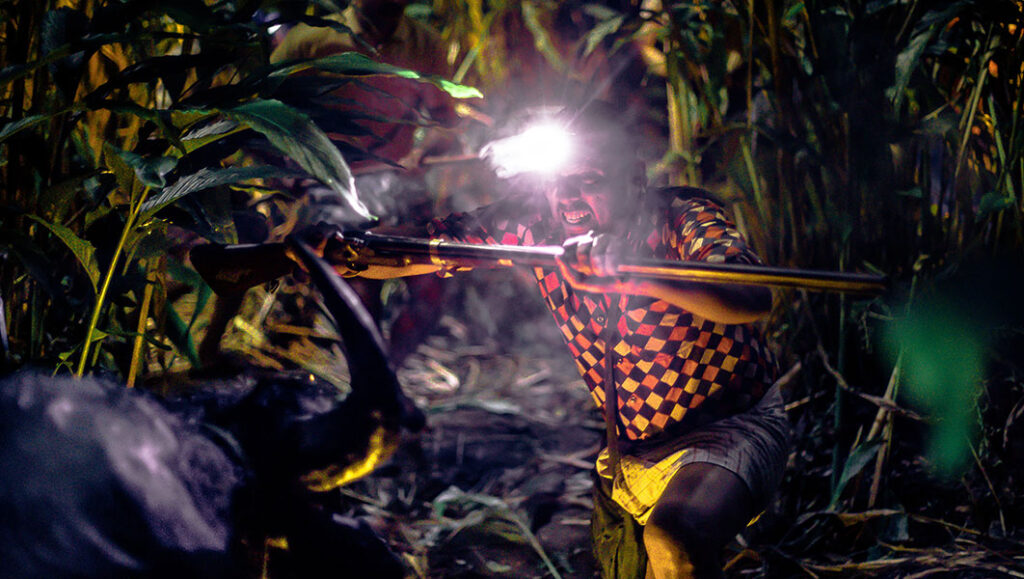A barrage of cuts set to the metronome of a ticking clock fragments the daily routine in and around a meat market in the opening moments of Lijo Jose Pellissery’s Jallikattu, suggesting that the film to follow might be an overwhelming sensory experience. But despite later outbursts of violence, this mundane montage is the film at its most enthralling as it soon after settles into a more arrhythmic forward motion where form takes a backseat. Set over the course of a single night, after a buffalo escapes from a butcher and wreaks havoc across the town, Jallikattu focuses on the large group of men that come together to find and kill the animal. Only, none of them can get along. The arrival of out of towners and the recruitment of a pariah to the cause further complicates matters. Soon, the giant search party has fragmented physically and philosophically. Debates over how to kill the beast are just as likely to break out as fist fights. Is this allegory? You bet. And while the cultural specifics might be lost on Western audiences (myself included), the big picture is easy to pick up on. This is a film with masculinity, capitalism and environmentalism on its mind. To the film’s credit, it’s almost never heavy handed, save a thudding visual metaphor in its very last moments, graciously leaving interpretation up for grabs. What rankles here is that for all of Pellissery’s talents–a few bravura compositions confirm the dude has an eye–he fails to enliven brawling and animal attacks, which you’d think should be exciting on their own. Instead, every violent reappearance of the buffalo is dead dull as it barrels into its would-be captors with the apparent force of an amateur stuntman pulling punches. Not that the humans, who Pellissery only lightly fleshes out via flashback and jumps between so often as to trivialize the notion of a character worth caring about, fare much better. A bit more focus and a lot more force might have brought the whole thing together.
Published as part of Toronto International Film Festival 2019 | Dispatch 5.


Comments are closed.